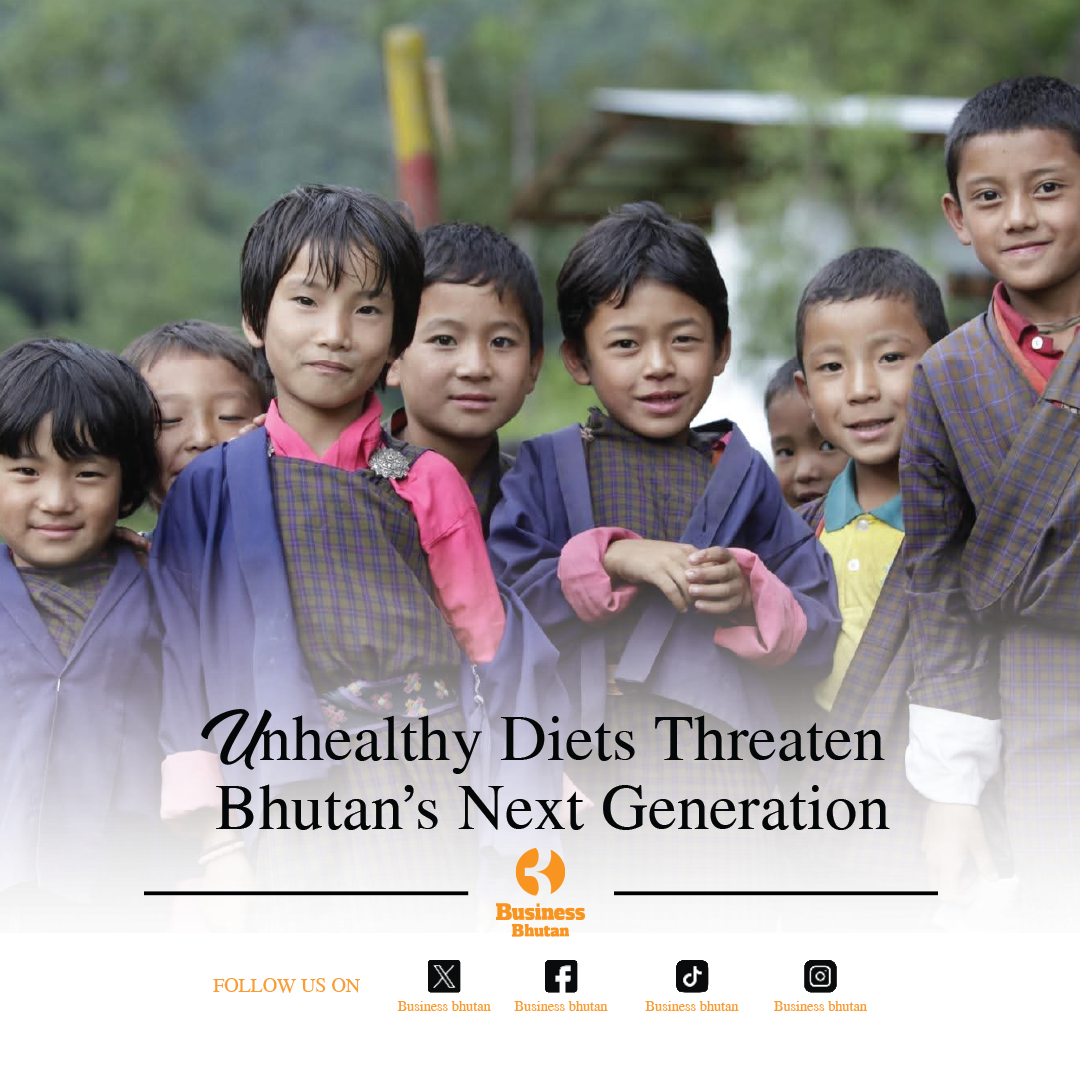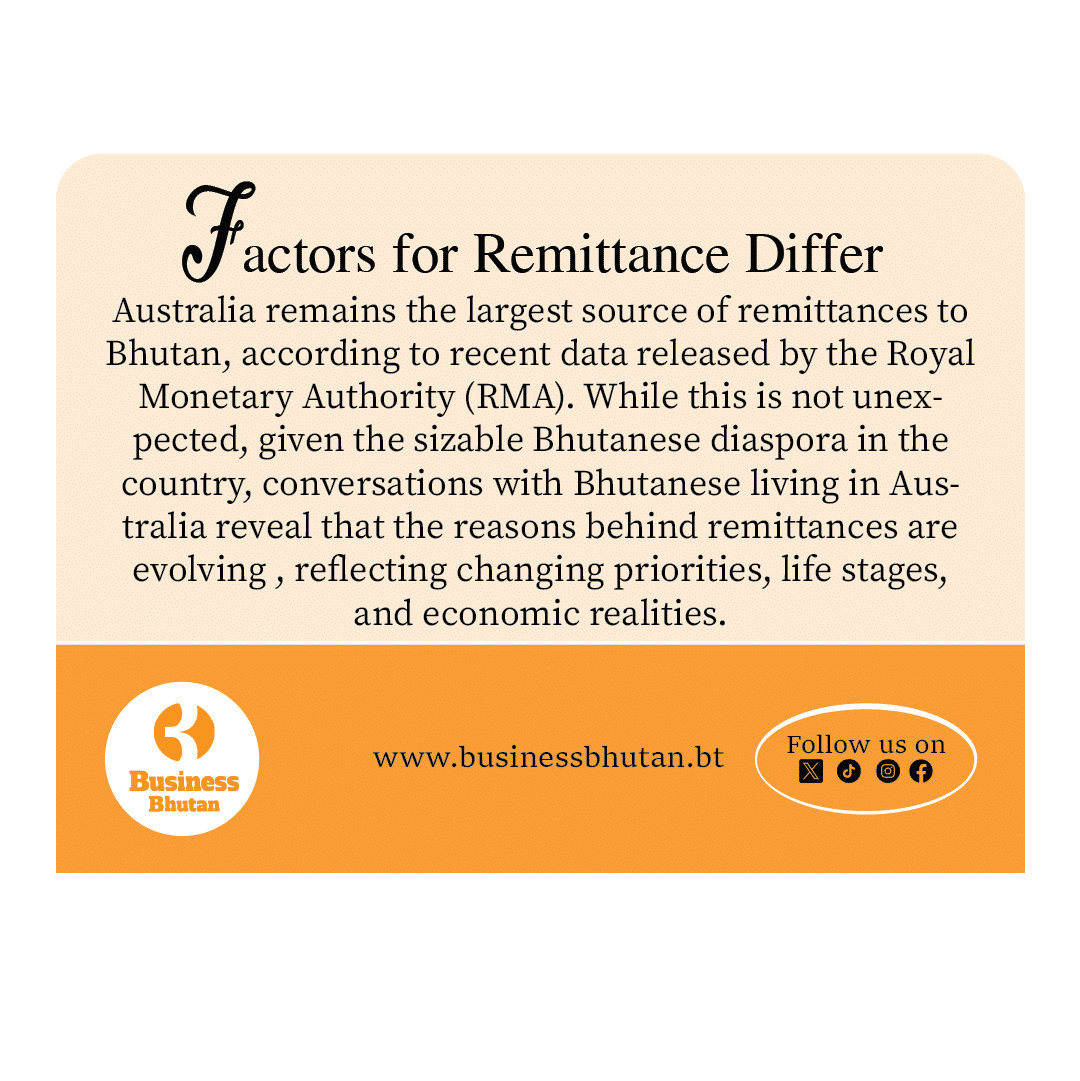Prime Minister, UNICEF Call for Multi-Sector Action to Protect Bhutan’s Children from Junk Food
The Ministry of Health (MoH) is developing a National Nutrition Strategy and Action Plan 2026–2030, centered on eight priority areas with interventions across the food system.
Prime Minister Tshering Tobgay echoed the urgency of the issue, cautioning that “We are destroying the future of children even before they are born.” He noted that Bhutanese families struggle to find nutritious food in markets dominated by ultra-processed products and urged multi-sectoral collaboration to reshape the food environment.
“Nutrition is a complex, multi-sectoral issue that requires collaboration from all sectors,” explained Hari Prasad Pokhrel, a Ministry nutritionist.
A 2023 survey by the United Nations International Children’s Education Fund (UNICEF), which highlights growing concerns over child nutrition and long-term health, found that young people are increasingly exposed to sugary drinks, salty snacks, and fast food, with such products easily available and often cheaper than healthier alternatives. Between 2011 and 2021, sales of salty snacks grew by nearly 16% annually, while sugary drinks recorded a 7% yearly increase.
This trend has contributed to worrying rise in childhood obesity. The number of overweight children and adolescents aged 5–19 climbed from 6% in 2000 to 18% in 2022. Alarmingly, this surge is occurring even as under nutrition and anemia continues to affect thousands, with girls more obese than boys.
“Bhutan is not short of food insecurity, but nutrition insecurity,” said Rushnan Murtaza, UNICEF Bhutan Representative. She stressed that young children depend on parents and guardians to shape their diets, making it essential to ensure healthy options are available at the community level. As children grow older, schools must play a pivotal role in guiding dietary choices and fostering healthier habits.
UNICEF has renewed its commitment to ensuring that “every child eats well and grows well,” supporting Bhutan’s own Nutrition Framework and broader reform efforts.
Zivai Murira, UNICEF Regional Adviser for Nutrition, warned that obesity is now leading to early-onset diabetes and cardiovascular risks among adolescents—diseases once associated only with adults.
During a UNICEF roundtable meeting in Thimphu on 10 September, Professor Monika Arora of the Public Health Foundation of India recommended global best practices, including taxing junk foods and restricting advertising to children.
Parents, however, acknowledge the challenge of keeping children away from junk food. “It’s very difficult,” said Khandu Wangmo, a mother of two. “Sometimes we give in when children lose control, but we are trying our best to encourage sports and healthy eating.”
At the school level, progress is visible. Samcholing Primary School ECCD Centre in Trongsa enforces a strict ‘no junk food’ policy, where students’ snacks are checked and unhealthy items are discarded.
UNICEF emphasizes that tackling the issue requires policy reform, stronger regulations, community action, and parental engagement. The organization continues to advocate for healthier food environments to reduce the growing risks of obesity, malnutrition, and related diseases.
Meanwhile, with rising rates of childhood obesity, Bhutan faces a turning point: whether to allow unhealthy diets to compromise the well-being of its next generation, or to act decisively in ensuring that every child has access to nutritious, affordable, and sustainable food.
Sangay Rabten, from Thimphu
















